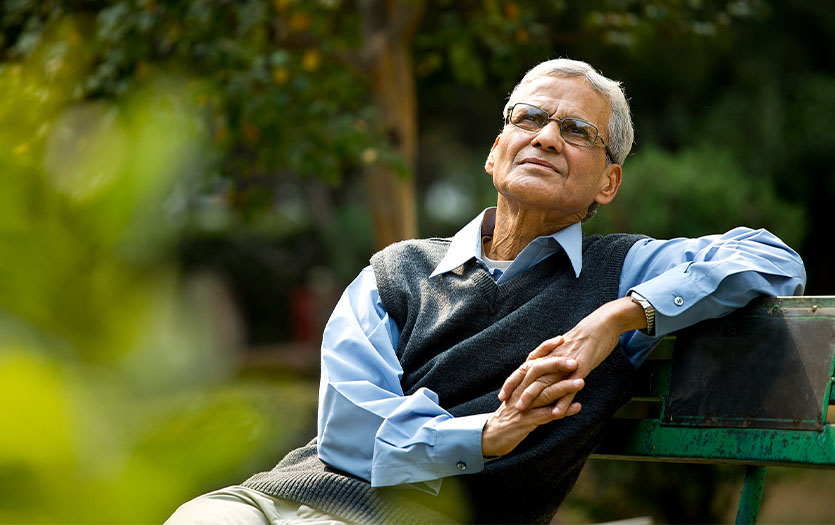
This post was written by Courtney L. Washington, PsyD, CSYAC, HSPP, clinical training director, Park Center, Parkview Behavioral Health Institute, in honor of Mental Health Awareness Month. Please note, this article may be triggering to those who have experienced gender-based violence.
Recently, I co-facilitated a group of adults across the gender spectrum. As the topic shifted to personal sexual assault and violent experiences, this jovial group became quiet, heavy and reflective. The change was palpable, as was people’s pain. Each person shared at least one experience, and I witnessed members who were practical strangers reach out to connect and support each other. While the details of each story were different, the aftermath of feeling powerless, shameful, responsible and as if they “should have known better” was consistent. The group connected so deeply on this topic because every one of them had at least one experience. Unfortunately, members of this group are not unique, and almost every woman I know has some nightmare story of her worst, first or most demeaning assault.
Staggering statistics
Violence against women and girls in this world is staggeringly pervasive. A recent study by the World Health Organization (WHO) found that 1 in 3 women experience intimate partner violence, sexual violence from a non-partner or both at least once in their lives.
While I knew this number was astounding based on my own and others’ experiences shared with me, 1 in 3 still took my breath away. I have a hard time digesting and understanding the overwhelming distaste for people of my gender. Worse, this issue is cross-culturally impacting almost every continent, country and group around the globe.
As I reflect, I remembered one of my favorite 2 Pac songs:
-Keep ya head up, 1994
These lyrics have always resonated with me. Even as a young girl, I was aware of the dangers of being a woman in this world. Despite this awareness and caution, I, too, am 1 in 3.
Defining the violence
The United Nations defines violence against women as any act of gender-based violence that results in physical, sexual or mental harm or suffering to women. These offenses can occur in public or private and broken down into two broad categories:
Intimate Partner Violence: This is behavior by an intimate partner or ex-partner that causes physical, sexual or psychological harm. It can include but is not limited to physical abuse, sexual coercion, psychological abuse and other controlling behaviors.
Sexual Violence: This is any sexual act, attempted sexual act, or other act directed against a person’s sexuality using coercion or force regardless of their relationship. This includes rape, defined as physically forced or coerced penetration, attempted rape, unwanted sexual touching and other non-contact forms of sexual engagement.
The risk factors for intimate partner violence can include:
- Lower levels of education
- A history of exposure to child maltreatment
- Witnessing family violence
- Antisocial personal disorder
- Harmful use of alcohol
- Harmful masculine behaviors
- Community norms that ascribe higher status to men
- Low levels of women’s access to paid employment
- Low level of gender equality
The psychological impacts of gender-based violence can include:
- Depression
- Anxiety
- Post-Traumatic Stress Disorder (PTSD)
- Suicide
- Low-sense of self
- Loss of sleep
- Self-harm
- Substance use
- Negative effect on child development
A look at why
So, what leads to such staggering numbers? As a culture, we operate under the assumption that only strangers in dark alleys commit sexual assault. However, this is not the case. 93% of sexual assaults were perpetrated by people the survivor knows. 59% of these crimes were committed by acquaintances while 34% by family members. I can’t help but wonder what it does to women and girls’ beliefs about others and the world when the most heinous crimes occur with people we know and people we trust, and who play a role in our safety.
This statistic highlights that women’s lives are most at risk with someone familiar versus a total stranger, as the likelihood of a woman getting killed by an intimate partner is high. According to the National Resource Center on Domestic Violence, 1 out of every 10 people murdered in the US results from intimate partner violence. Of these, 7 out of 10 are women. Globally, intimate partners commit 38% of murders against women. Unfortunately, these numbers are on the rise since the pandemic, as lockdowns have caused increase stress and less access to support.
It’s important to remember that this number may be an underrepresentation of the problem even with such a stunning statistic as these cases are notoriously under-reported. One reason for this is the concept of victim-blaming. Victim blaming is the idea that the survivor rather than the perpetrator bears the responsibility for the assault. These are the questions of what she was wearing or how much she drank before being raped. It is sending teenage girls home from school for wearing yoga pants because boys can’t control themselves. These messages are powerful and teach girls they must protect themselves from being assaulted verse teaching boys mutual respect of both genders and not assaulting others. Let me be clear. Men, and boys too, are assaulted but not to the same degree or consistency as their female counterparts. This experience of blame and shame fuels the beliefs that women are responsible for the violence perpetrated against them and leads to fear when coming forward about one’s experience.
A shift in perspective
While each woman has a nightmare story, most self-aware men are the “bad guy” to a woman. This is not to say that all men are sexual or violent predators. Still, how we socialize the genders about sex, sexual decision-making, purity culture, intimate relationships, gender roles, emotional expression, and expressions of power and control are dangerous and lead to the perpetuation of such experiences. From my perspective, this is where change can occur.
Jacksons Kat, PhD, has focused his career on gender-based violence. He proposes violence against women as a man’s issue, and our approach to this issue requires a shift in language. He argues that men and masculinity have been rendered invisible in much of the discussion around gender violence. The language used in these situations by identifying them as “women’s issues” allows men to not pay attention, despite these issues impacting women they love at every level. For example, our culture talks about how many women got raped last year instead of focusing on how many men raped women. This passive voice has a political effect and shifts the focus from men’s actions and places responsibility on women and girls. Another way we hold survivors accountable over perpetrators is by using the term accuser in place of the alleged victim. This subtle shift displaces responsibility for the actions and leads people to question motives. Which, in turn, serves as another way to keep survivors from coming forward.
Since language is insidious, this shift in perspective is necessary to encourage cultural and global change. I desire to live in a world that treats everyone with respect and dignity, where my fellow women don’t have to walk around with pseudo weapons while alone at night or require their girlfriend to interrupt someone pressuring her at the club. A world where a simple “I’m not interested” works as well to deter a person as telling them you are in a relationship. Because the worst thing a man can experience when being turned down is a bruise to his ego, while the worst thing a woman will experience is death. A world where men don’t have to assert dominance to feel powerful, feel entitled to another human’s body or feel their sexual prowess defines their worth. A world where all women and girls are safe with all people but especially their most trusted partners. A world where the statistic of 1 in 3 is no longer our reality.
Women are fighters and survivors. We must make our voices heard, our experiences deserve to be acknowledged, and we deserve to feel safe as we move through the world. We all deserve a world with true equity and respect for all humans. Unfortunately, 1 in 3 is our reality, but it doesn’t have to be. We have the power to change our cultural perspectives and language to create a better world for the next generation. I believe we can get there through conversations like this.
Resources
Parkview Behavioral Health Institute



